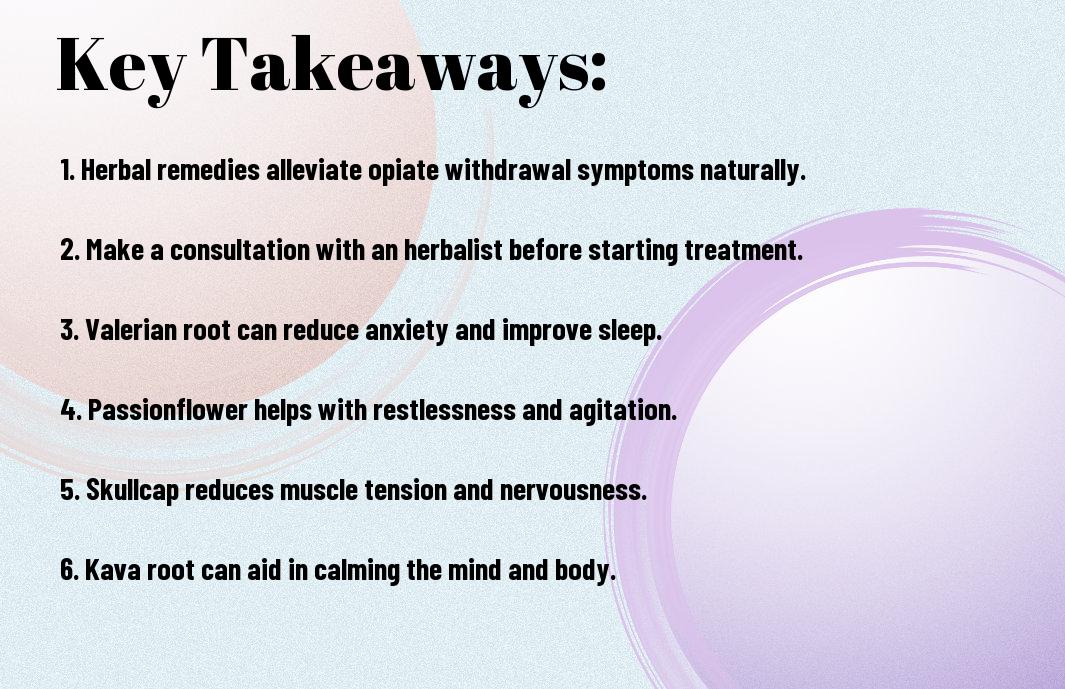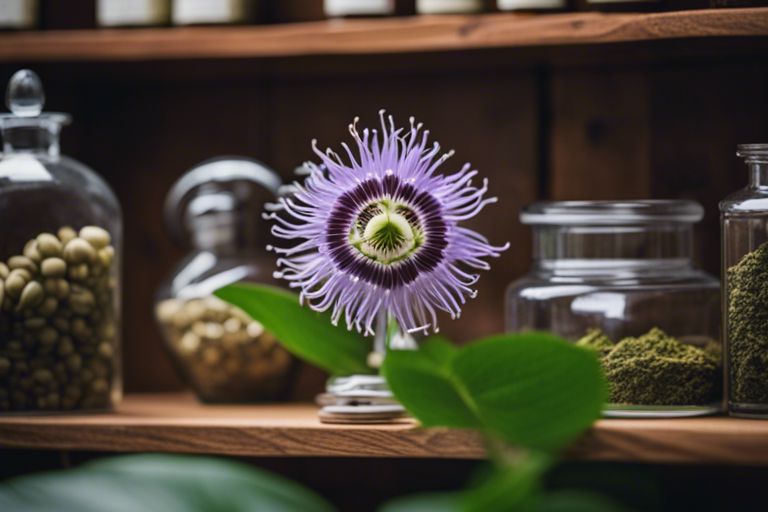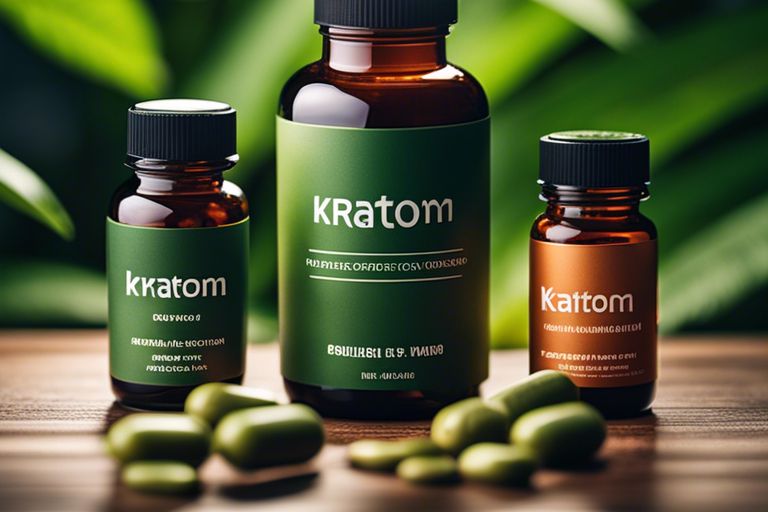There’s a natural solution that can help ease your transition off opioids – herbal remedies. If you’re looking for alternative ways to manage the symptoms of opiate withdrawal, incorporating herbal supplements and remedies into your routine may provide relief. In this blog post, we will explore various herbs known for their potential to alleviate withdrawal symptoms and support your recovery journey.

The Opiate Epidemic
The Rise of Opiate Addiction
For those who have been following the news, you are likely aware of the alarming rise in opiate addiction over the past few decades. What started as a well-intentioned effort to manage pain has turned into a full-blown epidemic affecting millions of people around the world. The addictive nature of opiates, whether in the form of prescription painkillers or illegal substances like heroin, has led to devastating consequences for individuals, families, and communities.
Conventional Treatment Options
One of the conventional treatment options for opiate addiction is medication-assisted therapy, which involves the use of medications like methadone or buprenorphine to help manage withdrawal symptoms and reduce cravings. While these medications can be effective for some individuals, they also come with their own set of risks and side effects. Another common approach is inpatient or outpatient rehabilitation programs, where individuals receive therapy, counseling, and support to help them overcome their addiction.
It’s important to note that while these conventional treatment options can be beneficial for many people struggling with opiate addiction, they may not be the right fit for everyone. Additionally, the high cost of these treatments, along with potential stigma associated with seeking help for addiction, can be barriers for some individuals in getting the support they need.
Herbal Remedies for Opiate Withdrawal
Some natural remedies can help you manage opiate withdrawal symptoms effectively without the need for harsh medications. These herbal remedies work to ease discomfort and support your body during this challenging time.
Kratom: A Natural Pain Reliever
With its origins in Southeast Asia, Kratom is gaining popularity for its potential to alleviate pain and reduce opiate withdrawal symptoms. Kratom interacts with the same receptors in the brain as opioids, providing a sense of calmness and relieving discomfort. It can help you manage the aches, pains, and restlessness that often accompany opiate withdrawal.
CBD Oil: Reducing Anxiety and Inflammation
Anxiety and inflammation are common side effects of opiate withdrawal. CBD oil, derived from the cannabis plant, has shown promising results in reducing anxiety and inflammation. CBD interacts with your body’s endocannabinoid system, helping to regulate mood, pain, and immune response. By incorporating CBD oil into your routine, you can experience relief from these challenging symptoms.
Anxiety and inflammation can exacerbate the discomfort of opiate withdrawal. CBD oil’s calming and anti-inflammatory properties make it a valuable herbal remedy to consider during this time.
Passionflower: A Calming Agent
The passionflower plant has been used for centuries to promote relaxation and alleviate anxiety. By incorporating passionflower supplements or teas into your routine, you can experience a sense of calmness and tranquility during opiate withdrawal. Passionflower works by increasing levels of a neurotransmitter called GABA, which helps to reduce stress and anxiety, making it a valuable herbal remedy for managing withdrawal symptoms.
The calming properties of passionflower can help you navigate the emotional challenges of opiate withdrawal, promoting a greater sense of well-being and peace during this time.
Other Herbal Options
Valerian Root: Promoting Relaxation
To promote relaxation during opiate withdrawal, you may want to consider using Valerian root. Valerian root is known for its calming effects and can help ease anxiety and insomnia, which are common symptoms of withdrawal. You can take Valerian root as a tea or in supplement form to help you relax and get through this challenging time.
St. John’s Wort: Managing Depression
One herbal option for managing depression during opiate withdrawal is St. John’s Wort. This herb has been used for centuries to treat mood disorders and has shown promising results in helping alleviate symptoms of depression. St. John’s Wort can help boost your mood and improve your overall sense of well-being as you navigate through withdrawal.
St. John’s Wort should be used with caution and it is always recommended to consult with a healthcare professional before incorporating it into your treatment plan. It may interact with certain medications, so it is important to ensure it is safe for you to use.
Kava: Reducing Anxiety and Stress
Another herbal remedy that can help you through opiate withdrawal is Kava. Kava is known for its calming properties and is often used to reduce anxiety and stress. This herb can help relax your mind and body, making it easier for you to cope with the symptoms of withdrawal. You can consume Kava in the form of tea or supplements to help alleviate anxiety and promote a sense of calm.
Reducing anxiety and stress during opiate withdrawal is important for your overall well-being, and Kava can be a valuable herbal option to consider. As always, it is best to consult with a healthcare provider before starting any new supplement regimen to ensure it is safe for you.
How Herbal Remedies Work
Many individuals experiencing opiate withdrawal turn to herbal remedies to alleviate their symptoms. While there are conventional medications available to help with opioid withdrawal, such as Opioid Withdrawal Medications, Remedies, and Supplements, some people prefer the natural approach that herbal remedies offer.
Interacting with the Body’s Opioid Receptors
Remedies like kratom and passionflower interact with your body’s opioid receptors, which are the same receptors that prescription opioids bind to. This interaction can help ease withdrawal symptoms by mimicking the effects of opioids without causing the same level of dependence.
Reducing Withdrawal Symptoms
Body’s natural supplements like magnesium and amino acids can help reduce the severity of withdrawal symptoms you may experience. Magnesium can help with muscle cramps and agitation, while amino acids like L-tyrosine can support your brain in restoring its natural balance of neurotransmitters.
Addressing the nutritional deficiencies that often accompany opioid use can also help alleviate some withdrawal symptoms. Your body may be deficient in imperative vitamins and minerals, so incorporating herbal remedies rich in these nutrients can support your overall health during this challenging time.
Supporting Overall Health
Herbal remedies not only target the symptoms of opiate withdrawal but also support your overall health and well-being. For example, herbs like ashwagandha and rhodiola can help regulate your stress response and promote a sense of calm during this difficult period.
Additionally, incorporating herbal teas and tinctures rich in antioxidants can help reduce inflammation in your body and support your immune system as you work through the withdrawal process.

Safety Precautions and Contraindications
Unlike prescription medications, herbal remedies for opiate withdrawal may not have undergone rigorous testing for safety and efficacy. It’s necessary to approach herbal remedies with caution and consider potential interactions with medications, allergic reactions, and side effects.
Potential Interactions with Medications
The use of herbal remedies for opiate withdrawal alongside certain medications can lead to interactions that may be harmful to your health. It’s crucial to consult with your healthcare provider before starting any herbal remedy regimen, especially if you are taking medications for other health conditions. Your doctor can help you determine if there are any potential interactions to be aware of and adjust your treatment plan accordingly.
Allergic Reactions and Side Effects
Interactions with herbal remedies can vary from person to person, and some individuals may experience allergic reactions or side effects. It’s necessary to monitor how your body responds to the herbal remedy and seek medical attention if you notice any adverse reactions. Common side effects may include nausea, dizziness, or skin irritations. If you have a history of allergies, it’s especially important to be cautious when trying out herbal remedies for opiate withdrawal.
Interactions with herbal remedies may not always be predictable, and it’s crucial to be vigilant about any signs of allergic reactions or side effects when incorporating these remedies into your treatment plan. If you experience any unusual symptoms, discontinue use immediately and consult your healthcare provider for guidance on next steps.
Pregnancy and Breastfeeding Considerations
Potential risks associated with herbal remedies for opiate withdrawal during pregnancy and breastfeeding are not well studied. It’s necessary to exercise caution and consult with your healthcare provider before using any herbal remedies if you are pregnant or nursing. The effects of these remedies on fetal development or infants are not fully understood, and it’s best to err on the side of caution to protect the health of both you and your baby.
It’s important to note that some herbal remedies may have contraindications for use during pregnancy and breastfeeding. Always seek guidance from your healthcare provider to ensure the safety of both you and your baby when considering herbal remedies as part of your opiate withdrawal treatment plan.
Combining Herbal Remedies with Conventional Treatment
After deciding to incorporate herbal remedies into your treatment plan for opiate withdrawal, it is crucial to consider how these natural options can complement conventional methods. Integrating herbal remedies with traditional rehabilitation programs can help improve your overall well-being and support your journey towards recovery.
Integrating Herbal Remedies into Rehabilitation Programs
An important aspect of using herbal remedies for opiate withdrawal is to work closely with healthcare professionals to ensure the safe and effective integration of these natural options into your treatment plan. Your healthcare provider can help monitor your progress, adjust dosages as needed, and provide guidance on how herbal remedies can interact with any medications you may be taking.
Working with Healthcare Professionals
Remedies for opiate withdrawal should always be done under the supervision of a healthcare professional. Your doctor can offer valuable insight into which herbal remedies may be most beneficial for your specific symptoms and circumstances. They can also help you navigate any potential interactions between herbal remedies and any prescribed medications.
Working together with your healthcare team can ensure that you are receiving comprehensive care that addresses all aspects of your opiate withdrawal, including both the physical and emotional components of your recovery.
Monitoring Progress and Adjusting Treatment
On your journey towards overcoming opiate withdrawal, it is crucial to regularly monitor your progress and make adjustments to your treatment plan as needed. By keeping track of how you are feeling and any changes in your symptoms, you can work with your healthcare provider to tailor your herbal remedy regimen for optimal effectiveness.
Rehabilitation is not a one-size-fits-all process, and by staying actively involved in monitoring your progress, you can ensure that your treatment plan continues to support your recovery goals.
Summing up
Taking this into account, using herbal remedies for opiate withdrawal can be a natural and effective way to alleviate symptoms and support your body during this challenging time. By incorporating herbs such as passionflower, valerian root, and ginger into your routine, you can help ease anxiety, promote relaxation, and reduce discomfort.
It is crucial to consult with a healthcare provider before starting any herbal treatment plan, as they can provide guidance on dosages, potential interactions, and overall safety. Remember that herbal remedies may not work the same for everyone, so it’s crucial to listen to your body and adjust accordingly. With patience and support, you can navigate opiate withdrawal using the power of nature’s healing properties.
Q: What is opiate withdrawal?
A: Opiate withdrawal refers to the range of physical and psychological symptoms that occur when someone reduces or stops their use of opiates after a period of regular use.
Q: What are the common symptoms of opiate withdrawal?
A: Common symptoms of opiate withdrawal include muscle aches, anxiety, insomnia, sweating, nausea, vomiting, diarrhea, and drug cravings.
Q: How can herbal remedies help with opiate withdrawal?
A: Herbal remedies can help ease the symptoms of opiate withdrawal by supporting the body’s natural detoxification processes, reducing cravings, and promoting relaxation and sleep.
Q: What are some commonly used herbal remedies for opiate withdrawal?
A: Some commonly used herbal remedies for opiate withdrawal include passionflower, valerian root, ginger, turmeric, and kava kava.
Q: Are there any risks or side effects associated with using herbal remedies for opiate withdrawal?
A: While herbal remedies are generally considered safe, it’s important to consult with a healthcare provider before using them, especially if you have any pre-existing health conditions or are taking medications. Some herbs may cause side effects or interact with certain medications.
Q: How can I use herbal remedies for opiate withdrawal?
A: Herbal remedies for opiate withdrawal can be taken as teas, tinctures, capsules, or powders. It’s important to follow the recommended dosage instructions on the product packaging or as advised by a healthcare provider.
Q: Can herbal remedies be used as a substitute for professional medical treatment for opiate withdrawal?
A: While herbal remedies can be a helpful addition to a comprehensive treatment plan for opiate withdrawal, they should not be used as a substitute for professional medical treatment. It’s important to seek guidance from a healthcare provider or addiction specialist for a safe and effective treatment plan.









